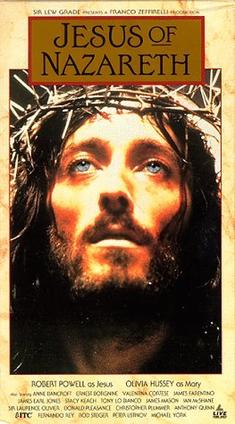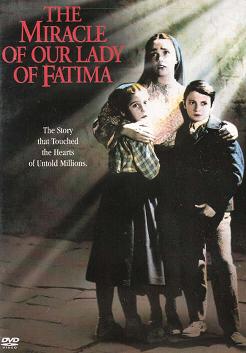For many people, this would be the number one film on the list. And I have complete resepect for that.
The Dark Knight is a great film.
Let's start by talking about the boldness of having a Batman movie without "Batman" in the title. (
Man of Steel would copy this formula later). Christopher Nolan had complete confidence in separating this movie from every other Batman movie that had come before. He believed he was telling a different story than anything we had ever seen.
And he was right.
Watch
Batman Begins and then watch
The Dark Knight. The two movies feel so different that if I didn't know better I would think that they were directed by two different people. The tone, the depth, the locations, the cinematography, and the performances all feel so different. Moving from the London soundstages to the streets of Chicago makes the film feel raw and rooted in reality.
But that is only part of the battle. The movie soars for two essential reasons:
The first is the thematic depths.
As I wrote when I analyzed the movie's philosophy:
Here we find the central thematic elements of the series. Are we essentially good or essentially bad? Thomas Aquinas said that humans are essentially good and that given the choice between good and evil they will always choose the good (even if it is only an apparent good). Martin Luther said that people are by nature bad and given the choice, we will always choose the bad. Both acknowledge that human nature is fallen, but one thinks that we can rise above it, the other does not. Thomas says that we can be transformed and become good. Luther says that we have to be covered up by the righteousness of another.
The Dark Knight Trilogy recognizes the worst and the best in humanity. The Joker is the embodiment of evil. It is important that we do not know his origins or his true identity. It does not matter what his upbringing was. “[S]ome men aren't looking for anything logical, like money. They can't be bought, bullied, reasoned, or negotiated with. Some men just want to watch the world burn.” The trilogy recognizes that some men will choose evil no matter what. They cannot be persuaded or moved by compassion. Men can become monsters.
But men can also be heroes. Batman is incorruptible on the issue of life. He refuses to kill (though he does skirt the line at the end of Batman Begins and The Dark Knight Rises). He constantly puts others before himself. There is a lot of Christology in the Batman character. Though he is too flawed to be a perfect Christ figure, Bruce goes out of his way to take on the burdens of others.
But what about the common man? Sure we have great saints and horrible sinners in our history, but those are the exceptions. What about the rule?
...
But the most important anthropological statement comes at the end of The Dark Knight. The Joker sets a bomb on two boats, one with convicts, the other with ordinary citizens. Each has explosives and the detonator to the others boat. Either they blow the other up or they both blow up. This test was the Joker's ultimate point. “See, their morals, their code... it's a bad joke. Dropped at the first sign of trouble. They're only as good as the world allows them to be. I'll show you, when the chips are down, these... these civilized people? They'll eat each other. See, I'm not a monster, I'm just ahead of the curve.” He is trying to prove that everyone, deep down, is like him. So what do they do? These people are faced with a choice for survival: Murder others or die.
The second are the characters.
When they cast Heath Ledger as the Joker I thought it was a terrible choice. And then when they showed early pictures of him I was less convinced. I thought his makeup and scars look was Nolan's way of dissing the character's comic book origins of falling into a vat of chemicals. But this was a case where Nolan understood that the change from page to cinema was a way to more effectively get across the character. There are reasons why Ledger's Joker is one of the great movie villains and that is because he embodies the spirit of the comic character. He is boiled down to his archetypal essence: he is, as he says, "an agent of chaos." I actually am comfortable with the theory that he is the devil incarnate. He has no name, no origin, and he is not interested in taking lives but taking souls.
Watch Ledger's performance and you can see the chaos in it. I have some limited training as an actor and what struck me the most about what he did was that he made all of the opposite choices I would have naturally made as an actor. His voice goes high when it goes low. He gets menacing when he should go lighter. And therein is part of the genius of the role: you cannot predict what he is going to do and it feels completely natural to the character. He is terrifying because you cannot out-think him. Even Batman has to do something morally questionable to get even a fighting chance to stop him.
Harvey Dent also is a better character than people realize. They often look to his third act turn as a bit extreme. But you can see how the unfairness of life has utterly destroyed him. He lost everything because he did the best he could. There is nothing fair about what happened to him and Rachel and I completely believe how that drove him over the edge. This is especially true because his downfall comes because of the moral failing of his partner Jim Gordon. Gordon put up with corruption and that corruption opened the door to Dent losing everything. But Gordon is the good man trying how cannot afford to be idealistic. He believes that the perefect is the enemy of the good but Dent sees how the moral compromise destroys him.
And this moral compromise leads to the biggest problem in
The Dark Knight: Batman and Gordon's lie. Granted that the consequences of this lie play out wonderfully in the sequel, but you can see how Gordon and Batman have not learned their lesson and bring on more misery to themselves.
Finally, there is Batman himself. There are two things mark this as one of the best depictions of Batman. The first was his interrogation scene with the Joker. The foiling of that scene was incredible, but the conclusion of the scene is the most important. Batman uses all of his physical intimdation on the Joker and it is powerless. Look at the desperate rage in Batman's eyes as he realizes that he has no power in this situatation and that he needs the Joker to save the woman he loves. And he is so desperate that he doesn't even consider the most obvious thing: the Joker lies.
The second is something that you almost never see in depictions of Batman: his optimism. Someone who works outside the law to fight crime must believe in human corruption. But that overlooks the fact that Batman believes that he can make a difference. He believes that human beings can become better.
This leads to the most important scene in the film: the defeat of the Joker. This is not where Batman captures him. This is where the Joker has set up a situation where average people and criminals will blow each other up. Batman has total faith in the people. When the Joker says that they should watch the fireworks, Batman says "There's not going to be any fireworks." And when the explosion doesn't happen you see the Joker's practiced hysteria crack. The Joker had complete belief in the ugliness of humanity and that small moment of common heroism destroys his whole world and fills his certaintity in evil with the doubt of goodness.
And all of this is without talking about Nolan's mastery with the camera to tell a story so visually compelling. He uses big spectacles like the exploding hospital or flipping truck to underscore the human drama in a way that few action movies do. He paces the movie as he ratchets the tension and the stakes until you cannot help but understand the horrible choice made at the end.
To this day, that final monologue scene fills me with emotion. I cannot help think of Isaiah 53 where the Suffering Servant takes on the sins of another. And so Batman takes on Dent's sins. "So we'll hunt him, because he can take it. Because he's not a hero. He's a silent guardian, a watchful protector... a Dark Knight."
















